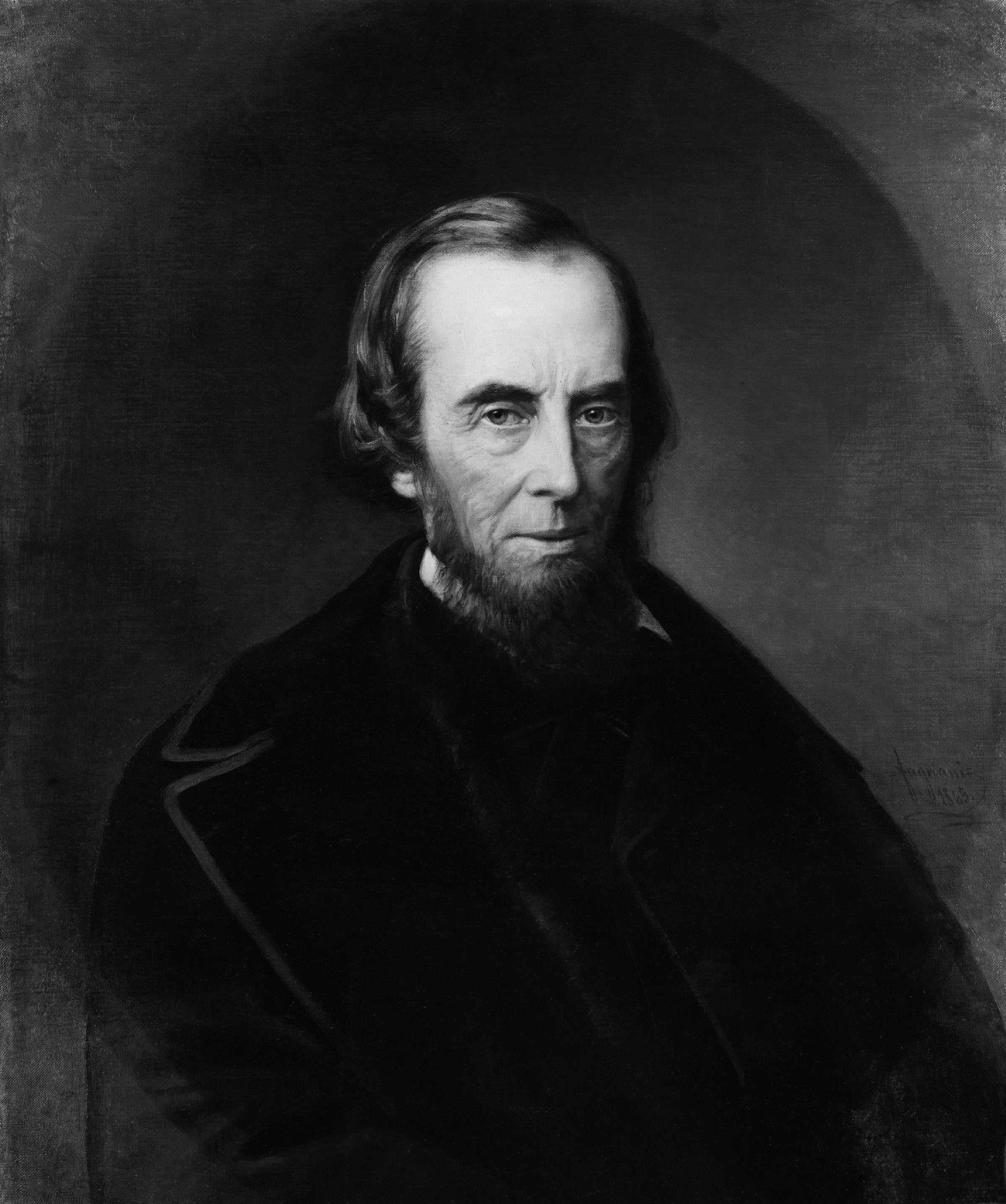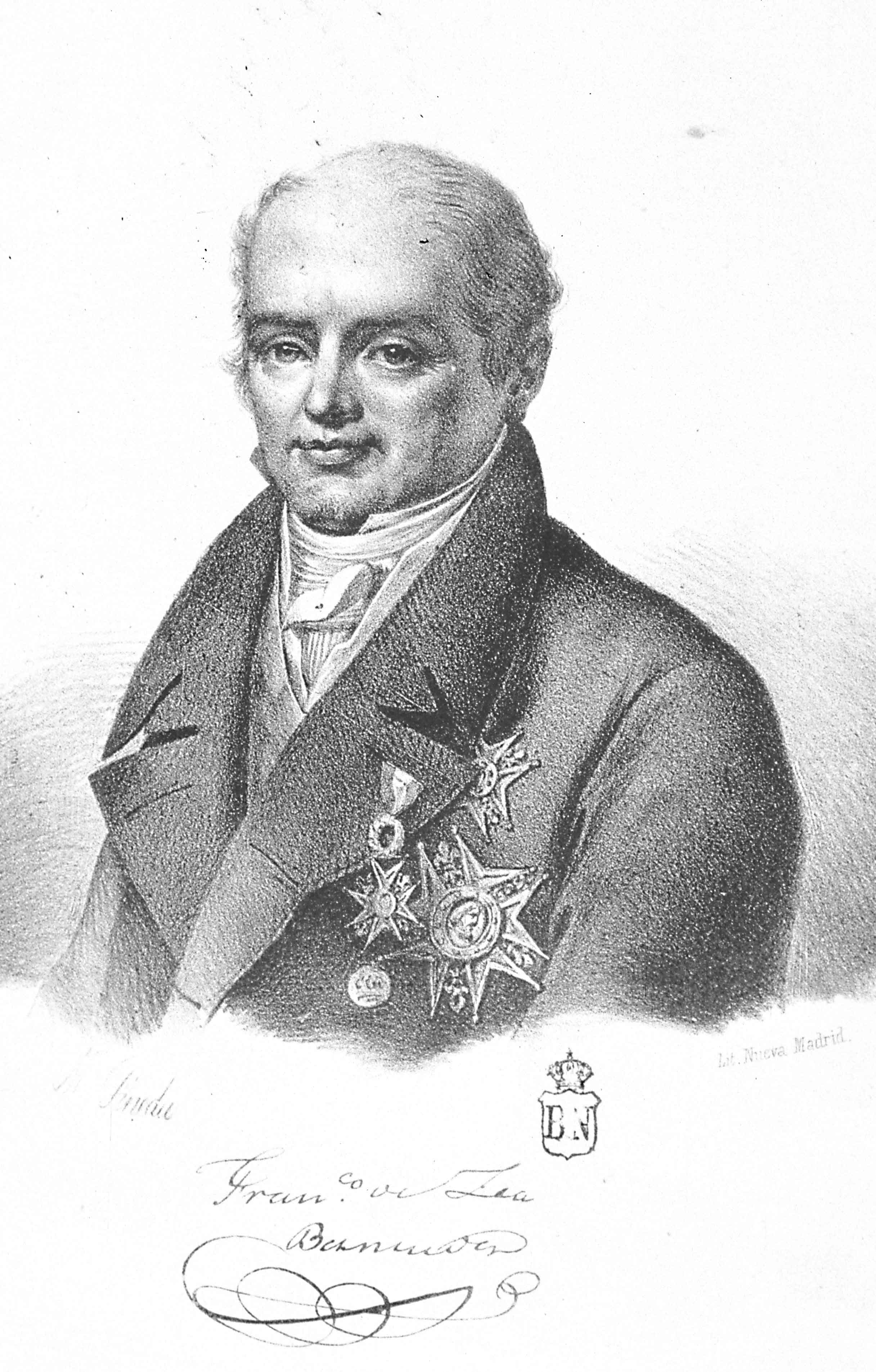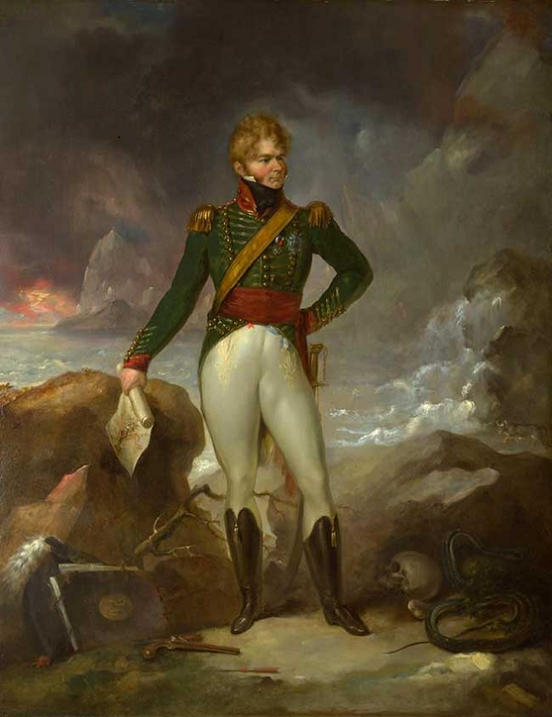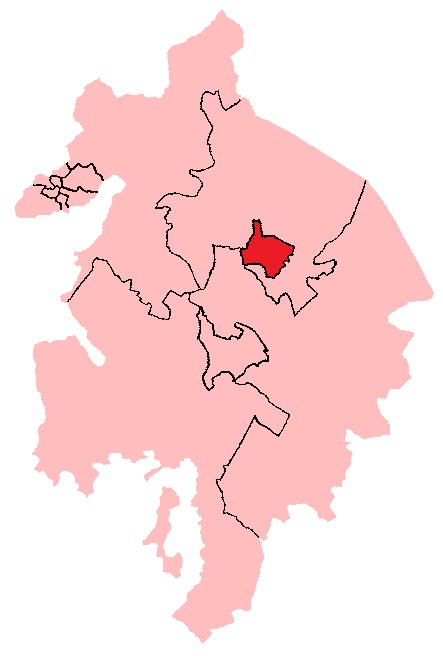|
Henry Bulwer-Lytton
(William) Henry Lytton Earle Bulwer, 1st Baron Dalling and Bulwer GCB, PC (13 February 180123 May 1872) was a British Liberal politician, diplomat and writer. Background and education Bulwer was the second son of General William Bulwer and his wife, Elizabeth Barbara, daughter of Richard Warburton-Lytton. He was an elder brother of Edward Bulwer-Lytton, 1st Baron Lytton, uncle of Robert Bulwer-Lytton, 1st Earl of Lytton, Viceroy of India, 1876–1880, and the uncle of Sir Henry Ernest Gascoyne Bulwer. He was educated at Harrow School, Trinity College and then the recently founded Downing College, both at Cambridge. After graduating and touring the continent, he joined the Life Guards in 1824 and exchanged to the 58th Regiment of Foot two years later. Diplomatic and political career After having unsuccessfully contested Hertford in 1826, Bulwer joined the Diplomatic Service in 1827 and was sent to Berlin in August that year, to Vienna in April 1829 and then to The Hague ... [...More Info...] [...Related Items...] OR: [Wikipedia] [Google] [Baidu] |
William Bulwer, Baron Dalling And Bulwer By Giuseppe Fagnani
William is a male given name of Germanic origin.Hanks, Hardcastle and Hodges, ''Oxford Dictionary of First Names'', Oxford University Press, 2nd edition, , p. 276. It became very popular in the English language after the Norman conquest of England in 1066,All Things William"Meaning & Origin of the Name"/ref> and remained so throughout the Middle Ages and into the modern era. It is sometimes abbreviated "Wm." Shortened familiar versions in English include Will, Wills, Willy, Willie, Bill, and Billy. A common Irish form is Liam. Scottish diminutives include Wull, Willie or Wullie (as in Oor Wullie or the play ''Douglas''). Female forms are Willa, Willemina, Wilma and Wilhelmina. Etymology William is related to the given name ''Wilhelm'' (cf. Proto-Germanic ᚹᛁᛚᛃᚨᚺᛖᛚᛗᚨᛉ, ''*Wiljahelmaz'' > German '' Wilhelm'' and Old Norse ᚢᛁᛚᛋᛅᚼᛅᛚᛘᛅᛋ, ''Vilhjálmr''). By regular sound changes, the native, inherited English form of the name shoul ... [...More Info...] [...Related Items...] OR: [Wikipedia] [Google] [Baidu] |
Hertford (UK Parliament Constituency)
Hertford was the name of a parliamentary constituency in Hertfordshire, which elected Member of Parliament (United Kingdom), Members of Parliament (MPs) from 1298 until 1974. History The Parliamentary Borough of Hertford was represented by two MPs in the House of Commons of England from 1298 to 1707, then of the House of Commons of Great Britain from 1707 to 1800, and finally in the House of Commons of the United Kingdom, House of Commons of the Parliament of the United Kingdom from 1801 onwards. Under the Boundaries Act of 1868, its representation was reduced to 1 MP. The Redistribution of Seats Act 1885 (which followed on from the Representation of the People Act 1884, Third Reform Act) abolished the Parliamentary Borough and it gave its name to one of four Divisions of the abolished three-member Parliamentary County of Hertfordshire (UK Parliament constituency), Hertfordshire, and was formally named as the Eastern or Hertford Division of Hertfordshire. As well from the B ... [...More Info...] [...Related Items...] OR: [Wikipedia] [Google] [Baidu] |
First Carlist War
The First Carlist War was a civil war in Spain from 1833 to 1840, the first of three Carlist Wars. It was fought between two factions over the succession to the throne and the nature of the Spanish monarchy: the conservative and devolutionist supporters of the late king's brother, Carlos de Borbón (or ''Carlos V''), became known as Carlists (''carlistas''), while the progressive and centralist supporters of the regent, Maria Christina, acting for Isabella II of Spain, were called Liberals (''liberales''), ''cristinos'' or ''isabelinos''. It is considered by some authors the largest and most deadly civil war of the period. The Carlist forces were split in three geographically distinct armies: ('North'), and ('Catalonia'), which by and large operated independently from each other. Aside from being a war of succession about the question who the rightful successor to king Ferdinand VII of Spain was, the Carlists’ goal was the return to a traditional monarchy, while the ... [...More Info...] [...Related Items...] OR: [Wikipedia] [Google] [Baidu] |
Isabella II Of Spain
Isabella II ( es, Isabel II; 10 October 1830 – 9 April 1904), was Queen of Spain from 29 September 1833 until 30 September 1868. Shortly before her birth, the King Ferdinand VII of Spain issued a Pragmatic Sanction to ensure the succession of his firstborn daughter, due to his lack of a son. She came to the throne a month before her third birthday, but her succession was disputed by her uncle the Infante Carlos (founder of the Carlist movement), whose refusal to recognize a female sovereign led to the Carlist Wars. Under the regency of her mother, Spain transitioned from an absolute monarchy to a constitutional monarchy, adopting the Royal Statute of 1834 and Constitution of 1837. Her effective reign was a period marked by palace intrigues, back-stairs and antechamber influences, barracks conspiracies, and military '' pronunciamientos''. She was deposed in the Glorious Revolution of 1868, and formally abdicated in 1870. Her son, Alfonso XII, became king in 1874. B ... [...More Info...] [...Related Items...] OR: [Wikipedia] [Google] [Baidu] |
George De Lacy Evans
General Sir George de Lacy Evans (7 October 1787 – 9 January 1870) was a British Army general who served in four wars in which the United Kingdom's troops took part in the 19th century. He was later a long-serving Member of Parliament. Life Evans was born in 1787, in Moig, County Limerick, Ireland. Educated at Woolwich Academy he followed his elder brother Richard (1782–1847) into the military, joining the East India Company's forces in 1800 before volunteering for the British Army in India in 1806. He obtained an ensigncy in the 22nd Regiment of Foot in 1807 then exchanged into the 3rd Light Dragoons in order to take part in the Peninsular War. He was sent on the expedition to the United States of 1814 during the War of 1812 under Major General Robert Ross. Evans was quartermaster general to Ross at the Battle of Bladensburg on 24 August 1814, and during the Burning of Washington, as well as at the Battle of North Point on 12 September 1814, where Ross was killed. ... [...More Info...] [...Related Items...] OR: [Wikipedia] [Google] [Baidu] |
Marylebone (UK Parliament Constituency)
Marylebone was a parliamentary constituency in Middlesex, England from 1832 to 1885. The parliamentary borough formed part of the built up area of London, and returned two members to the House of Commons of the UK Parliament and was created under the Reform Act 1832. It was abolished by the Redistribution of Seats Act, 1885 which split it into 8 seats. Boundaries Marylebone was one of five parliamentary boroughs in the metropolitan area of London enfranchised in 1832. The listed civil parishes (succeeding the parish vestries in all civil, secular matters) are respectively tinted pink, green and yellow on the inset map. The constituency was defined as consisting of three civil parishes in Middlesex: * Saint Marylebone *Paddington * Saint Pancras The commissioners appointed to fix its boundaries recommended that the part of Saint Pancras north of the Regent's Canal should be omitted thus remain in the parliamentary county of Middlesex being a still a largely rural projectio ... [...More Info...] [...Related Items...] OR: [Wikipedia] [Google] [Baidu] |
Coventry (UK Parliament Constituency)
Coventry was a borough constituency which was represented in the House of Commons of England and its successors, the House of Commons of Great Britain and the House of Commons of the United Kingdom. Centred on the City of Coventry in Warwickshire, it returned two Member of Parliament (United Kingdom), Members of Parliament (MPs) from 1295 until the Redistribution of Seats Act 1885, when its representation was reduced to one. The Coventry constituency was abolished for the 1945 United Kingdom general election, 1945 general election, when it was split into two new constituencies: Coventry East (UK Parliament constituency), Coventry East and Coventry West (UK Parliament constituency), Coventry West. Elections were held using the Plurality-at-large voting, bloc vote system when electing two MPs (until 1885), and then first-past-the-post to elect one MP thereafter. Boundaries From 1885 to 1918 the constituency consisted of the city of Coventry and the parish of Stoke.Debrett's Hou ... [...More Info...] [...Related Items...] OR: [Wikipedia] [Google] [Baidu] |
Belgian Revolution
The Belgian Revolution (, ) was the conflict which led to the secession of the southern provinces (mainly the former Southern Netherlands) from the United Kingdom of the Netherlands and the establishment of an independent Kingdom of Belgium. The people of the south were mainly Flemings and Walloons. Both peoples were traditionally Roman Catholic as contrasted with Protestant-dominated ( Dutch Reformed) people of the north. Many outspoken liberals regarded King William I's rule as despotic. There were high levels of unemployment and industrial unrest among the working classes. On 25 August 1830, riots erupted in Brussels and shops were looted. Theatregoers who had just watched the nationalistic opera '' La muette de Portici'' joined the mob. Uprisings followed elsewhere in the country. Factories were occupied and machinery destroyed. Order was restored briefly after William committed troops to the Southern Provinces but rioting continued and leadership was taken up by radicals, ... [...More Info...] [...Related Items...] OR: [Wikipedia] [Google] [Baidu] |
Brussels
Brussels (french: Bruxelles or ; nl, Brussel ), officially the Brussels-Capital Region (All text and all but one graphic show the English name as Brussels-Capital Region.) (french: link=no, Région de Bruxelles-Capitale; nl, link=no, Brussels Hoofdstedelijk Gewest), is a region of Belgium comprising 19 municipalities, including the City of Brussels, which is the capital of Belgium. The Brussels-Capital Region is located in the central portion of the country and is a part of both the French Community of Belgium and the Flemish Community, but is separate from the Flemish Region (within which it forms an enclave) and the Walloon Region. Brussels is the most densely populated region in Belgium, and although it has the highest GDP per capita, it has the lowest available income per household. The Brussels Region covers , a relatively small area compared to the two other regions, and has a population of over 1.2 million. The five times larger metropolitan area of Bruss ... [...More Info...] [...Related Items...] OR: [Wikipedia] [Google] [Baidu] |
Wilton (UK Parliament Constituency)
Wilton was the name of a parliamentary borough in Wiltshire. It was represented in the House of Commons of the Parliament of England from 1295 to 1707, then in the Parliament of Great Britain from 1707 to 1800 and finally in the House of Commons of the United Kingdom of the Parliament of the United Kingdom from 1801 to 1918. It had two Members of Parliament (MPs) until 1832, but from 1832 to 1885 only one member, as a result of the Reform Act 1832 where it also adsorbed the former rotten borough of Old Sarum.https://hansard.parliament.uk/Commons/1832-06-07/debates/6ae968df-aa6e-4237-b143-ba4feccb8072/DivisionOfCountiesAndBoundariesBill In 1885 the borough was abolished, but the name of the constituency was then transferred to a new county constituency electing one Member from 1885 until 1918. Boundaries 1885–1918: The Borough of Salisbury, the Sessional Divisions of Amesbury, Hindon, and Salisbury, and the civil parishes of Figheldean, Fisherton-de-la-Mere, Milston, and Wily. ... [...More Info...] [...Related Items...] OR: [Wikipedia] [Google] [Baidu] |
Rotten Borough
A rotten or pocket borough, also known as a nomination borough or proprietorial borough, was a parliamentary borough or constituency in England, Great Britain, or the United Kingdom before the Reform Act 1832, which had a very small electorate and could be used by a patron to gain unrepresentative influence within the unreformed House of Commons. The same terms were used for similar boroughs represented in the 18th-century Parliament of Ireland. The Reform Act 1832 abolished the majority of these rotten and pocket boroughs. Background A parliamentary borough was a town or former town that had been incorporated under a royal charter, giving it the right to send two elected burgesses as Members of Parliament (MPs) to the House of Commons. It was not unusual for the physical boundary of the settlement to change as the town developed or contracted over time, for example due to changes in its trade and industry, so that the boundaries of the parliamentary borough and of the physical ... [...More Info...] [...Related Items...] OR: [Wikipedia] [Google] [Baidu] |
British House Of Commons
The House of Commons is the lower house of the Parliament of the United Kingdom. Like the upper house, the House of Lords, it meets in the Palace of Westminster in London, England. The House of Commons is an elected body consisting of 650 members known as members of Parliament (MPs). MPs are elected to represent constituencies by the first-past-the-post system and hold their seats until Parliament is dissolved. The House of Commons of England started to evolve in the 13th and 14th centuries. In 1707 it became the House of Commons of Great Britain after the political union with Scotland, and from 1800 it also became the House of Commons for Ireland after the political union of Great Britain and Ireland. In 1922, the body became the House of Commons of the United Kingdom of Great Britain and Northern Ireland after the independence of the Irish Free State. Under the Parliament Acts 1911 and 1949, the Lords' power to reject legislation was reduced to a delaying power ... [...More Info...] [...Related Items...] OR: [Wikipedia] [Google] [Baidu] |





.jpg)

